The reinstatement of late-night comic Jimmy Kimmel’s show by ABC does not mitigate the free speech concerns triggered by his suspension. The recent actions of the Federal Communications Commission (FCC) under Chairman Brendan Carr are a warning about what is to come. Ominously, Carr has promised, “we’re not done yet.”
We should expect “a massive shift in dynamics in the media ecosystem,” Carr has warned. The FCC will preside over that shift in accord with what he describes as the “permission structure that President Trump’s election has provided.”
“We are fully aligned with the agenda that President Trump is running,” Carr told the Wall Street Journal. This includes his willingness to punish media companies if Trump and he believe they are “out of line.”
The FCC’s approach runs afoul of the First Amendment, which prohibits the government from “abridging the freedom of speech, or of the press.” The agency’s authorizing statute itself provides, “nothing in this chapter shall be understood or construed to give the Commission the power of censorship.” The Trump-Carr team has devised a workaround to these prohibitions by using political power to exploit economic incentives.
Television broadcasters operate using licenses to access the public’s airwaves. The FCC grants those licenses. The chairman’s coercive intent was made clear early in his term when he posted, “Broadcast licenses are not sacred cows. These media companies are required by law to operate in the public interest. If they don’t, they are going to be held accountable.” Because there is no precise definition of “public interest,” the FCC has broad discretion that ultimately comes down to the decision of one person: its chairman, Brendan Carr.
That broadcasters “are going to be held accountable” for their editorial decisions is the ultimate weaponization of regulatory power. No wonder the ABC affiliates scrambled when Carr said of the Kimmel situation, “We can do this the easy way or the hard way. These companies can find ways to change conduct and take action on Kimmel, or there’s going to be additional work for the FCC ahead.” Sen. Ted Cruz (R-Texas), normally a Carr supporter, likened this to the threat of a mob boss.
Such opinions have not stopped President Trump from threatening to use the FCC’s power to revoke broadcast licenses. On multiple occasions, he has complained that television networks hostile to him should have their broadcast licenses taken away. After the cancellation of CBS’s Stephen Colbert and the suspension of ABC’s Jimmy Kimmel, Trump pushed for more on Truth Social, writing: “That leaves Jimmy [Fallon] and Seth [Meyers], two total losers, on Fake News NBC…Do it NBC!!!”
These stories are a harbinger of things to come. For nearly a century, the FCC has followed its statutory mandate to assure the public’s airwaves deliver multiple ideas and opinions from diverse ownership. The Trump administration is now threatening to use the power of the agency not to protect this plurality of viewpoints, but to suppress it.
Added to the headline-grabbing intrusion into matters of content is the less visible ongoing effort to allow large broadcasters to acquire more stations and increase their power over what Americans see. To promote diversity of voices and opinions, Congress told the FCC to limit how many homes a chain broadcaster can reach to 39% of total households. Carr has made no secret of his desire to increase that cap, despite some scholars’ opinion that he cannot change what Congress has directed.
Demonstrating the connection between economic well-being and regulatory action, Nexstar, the nation’s largest chain broadcaster that appears friendly to Trump, is relying on Carr to change the ownership rule. It has agreed to purchase a smaller chain for $6.2 billion—a combination that would put it in 80% of American homes and vastly exceed the FCC rules. Nexstar owns 32 ABC affiliates and was quick to respond to Carr’s comments about Kimmel.
This consolidation aligns with the “massive shift in the media ecosystem” Carr forecast. When ownership of the means of expression is concentrated in just a few companies, it is easier for governments to put pressure on those companies. The Trump-Carr strategy appears to be reshaping the media landscape in this direction.
In 2023, then-commissioner Carr posted on social media, “[c]ensorship is the authoritarian’s dream.” At the time, many—including myself—read this as a defense of free speech. In light of Carr’s recent actions, it appears more like a roadmap: Use censorship and the power of the FCC to expand authoritarian control.
The Brookings Institution is committed to quality, independence, and impact.
We are supported by a diverse array of funders. In line with our values and policies, each Brookings publication represents the sole views of its author(s).

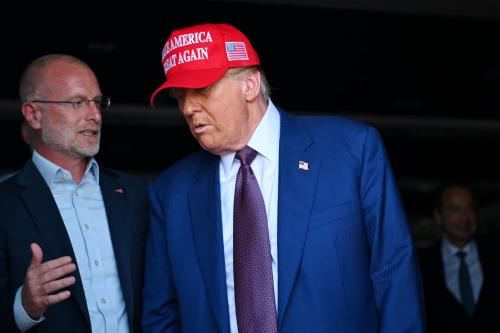
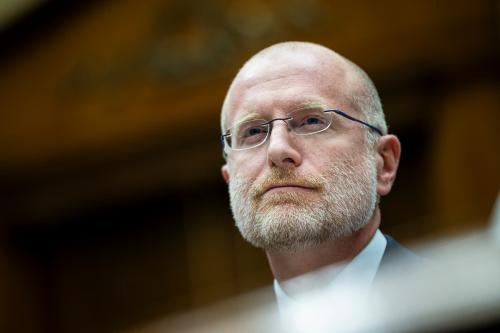
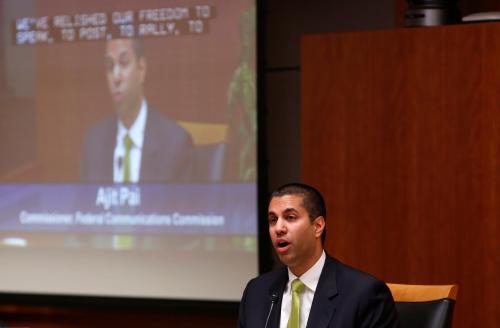


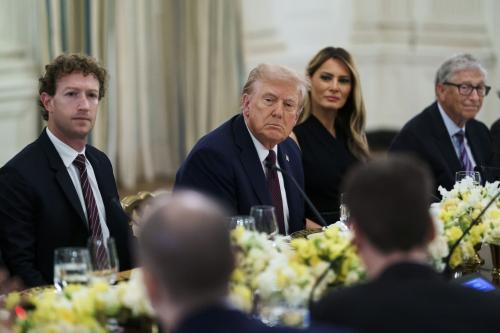
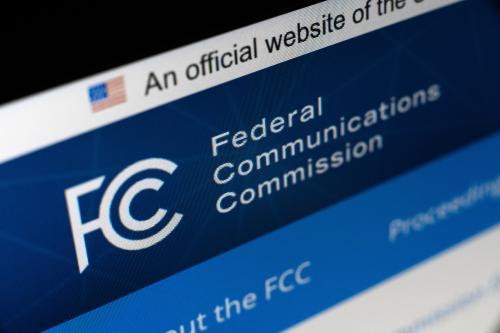
Commentary
Beyond Kimmel, the FCC controversy exposes a larger struggle over free speech
September 23, 2025